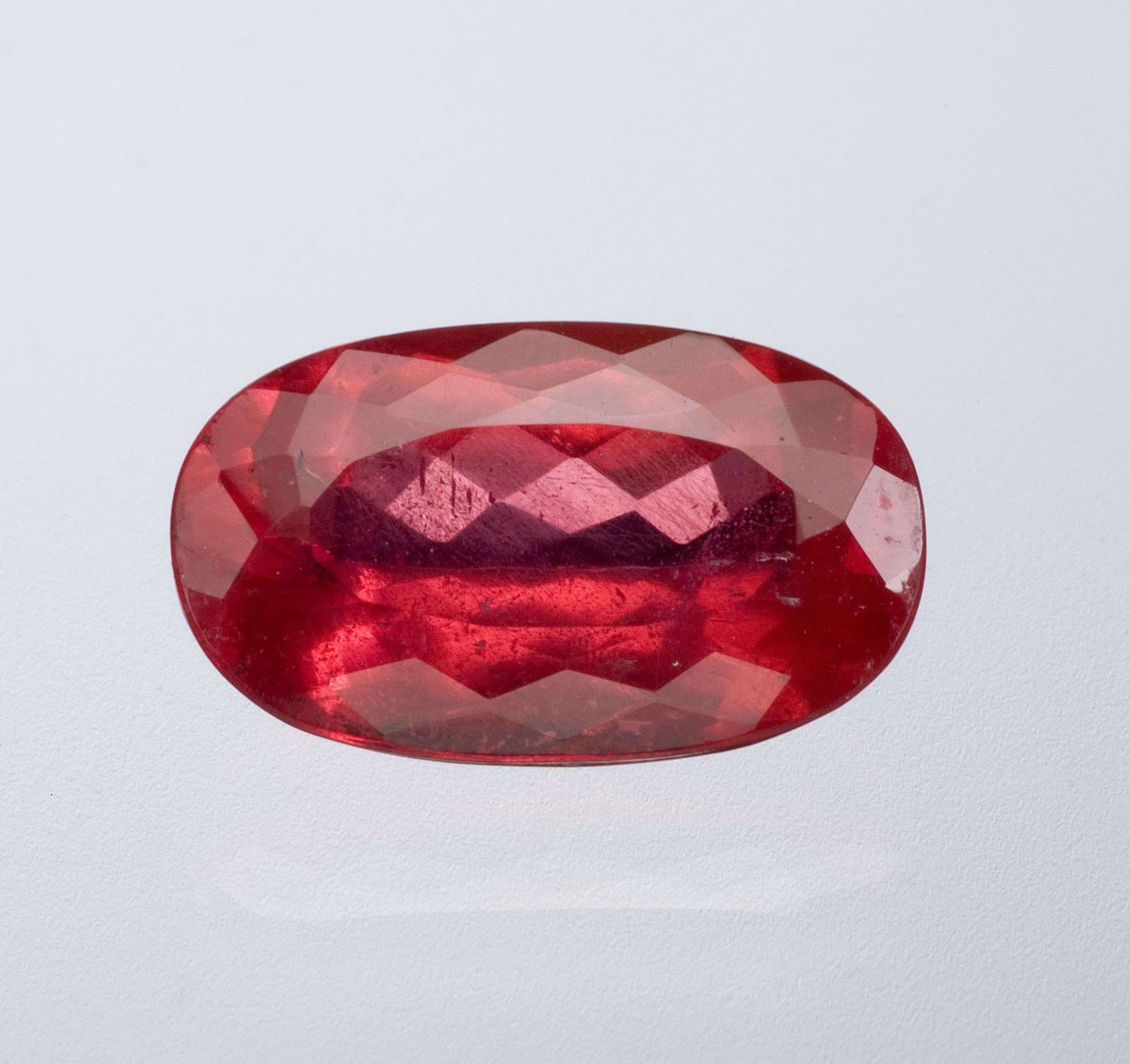Rhodonite Value, Price, and Jewelry Information
Ranging in color from pink to a fine rose red, rhodonite is a popular material for jewelry and decorative objects. Faceted rhodonite has an intense, beautiful color, but this material has a reputation as one of the most difficult gemstones to cut.
2 Minute Read
Ranging in color from pink to a fine rose red, rhodonite is a popular material for jewelry and decorative objects. Faceted rhodonite has an intense, beautiful color, but this material has a reputation as one of the most difficult gemstones to cut.
Start an IGS Membership today
for full access to our price guide (updated monthly).Rhodonite Value
Comments
Perfect cleavage that develops extremely easily makes transparent, facetable rhodonite quite delicate. Thus, faceted stones are rare. However, gem carvers can make cabochons, goblets, figurines, and other objects from massive material with attractive black dendritic, "tree-like," veins.
Identifying Characteristics
You may find cut bustamite gems erroneously labelled as rhodonites. They have a similar but paler color. However, bustamite's distinctly lower refractive indices (RIs) should prove diagnostic.
Cut pyroxmangite gems also resemble rhodonites. However, their birefringence values differ.
Fowlerite is a zinc-bearing variety of rhodonite.
Some rhodonites found in Brazil may show chatoyancy.
Optics and Specific Gravity
α | β | γ | Birefringence | Specific Gravity | 2V | |
| Honshu, Japan | 1.726 | 1.731 | 1.739 | 0.013 | 3.57 | 64° |
| Pajsberg, Sweden | 1.720 | 1.725 | 1.733 | 0.013 | 3.62 | 75° |
| Broken Hill, New South Wales, Australia | 1.723-1.726 | 1.728-1.730 | 1.735-1.737 | 0.011-0.013 | 3.68-3.70 | 74° |
| General | 1.711-1.738 | 1.716-1.741 | 1.723-1.752 | 0.011-0.014 | 3.57-3.76 | 63-76° |
Synthetics
Scientists have synthesized rhodonites for various projects, including research into their thermoluminescence.
You can find so-called "synthetic rhodonites" for sale in jewelry pieces. These appear most frequently as opaque pink to rose red beads with characteristic dendritic black veins rather than transparent faceted gems. (Oddly enough, some of this material features white bands more characteristic of rhodochrosite. Perhaps they're mislabeled).
An online search for "synthetic rhodonites" doesn't clarify whether these jewelry pieces contain actual lab-created rhodonite or just some other material intended to imitate or simulate the gem's appearance. This may be another example of the term "synthetic" used in the more popular sense of just simply "not real."
Enhancements
Rhodonites usually receive no treatments. Dyeing is rare.
Sources
Russia (Sverdlovsk) produces very fine and rich, massive, pink and rose-colored material. British Columbia, Canada yields fine rhodonite similar in appearance to the Russian material. However, the best material from British Columbia has a translucent, deep rose-pink color. Some fine, pink material from Bella Koola, British Columbia features black dendritic patterns.
Australia produces fine transparent crystals and massive material at Broken Hill, New South Wales. Gemmy rhodonite grains embedded in galena (lead sulfide) at this location are distinctive. Rhodonites can occur here with pyroxmangite and bustamite, which can grow in crystals up to 100 cm long!
Other notable gem sources include:
- Honshu, Japan: facetable material.
- Vermland, Sweden: good color gem material.
- Daghazeta, Tanzania: fine-quality massive material.
- United States: California; Colorado; Massachusetts (official state gemstone); Montana; Franklin, New Jersey.
- Brazil; Mexico; Peru; South Africa; Cornwall, United Kingdom.
Stone Sizes
Massive rhodonite pieces from various localities are available. However, extremely rare facetable gem material comes from crystals found primarily in Australia and Japan ranging in size from 2-3 carats. A few larger stones may exist.
Care
Although pieces cut from massive material have greater wearability, both faceted gems and carved objects require special care. Due to rhodonite's relatively low hardness, avoid mechanical cleaning such as steam or ultrasonic processes. Instead, use a soft brush, mild detergent, and warm water for cleaning. Store your rhodonites separately from other stones to avoid contact scratches. Use protective settings for your jewelry stones and avoid physical blows, due to their cleavage and fracture potential. Consult our gemstone jewelry cleaning guide for more recommendations.
Joel E. Arem, Ph.D., FGA
Dr. Joel E. Arem has more than 60 years of experience in the world of gems and minerals. After obtaining his Ph.D. in Mineralogy from Harvard University, he has published numerous books that are still among the most widely used references and guidebooks on crystals, gems and minerals in the world.
Co-founder and President of numerous organizations, Dr. Arem has enjoyed a lifelong career in mineralogy and gemology. He has been a Smithsonian scientist and Curator, a consultant to many well-known companies and institutions, and a prolific author and speaker. Although his main activities have been as a gem cutter and dealer, his focus has always been education.
International Gem Society
Related Articles
Gadolinite Value, Price, and Jewelry Information
Apatite Value, Price, and Jewelry Information
Amber Value, Price, and Jewelry Information
Zircon Value, Price, and Jewelry Information
Never Stop Learning
When you join the IGS community, you get trusted diamond & gemstone information when you need it.
Get Gemology Insights
Get started with the International Gem Society’s free guide to gemstone identification. Join our weekly newsletter & get a free copy of the Gem ID Checklist!
